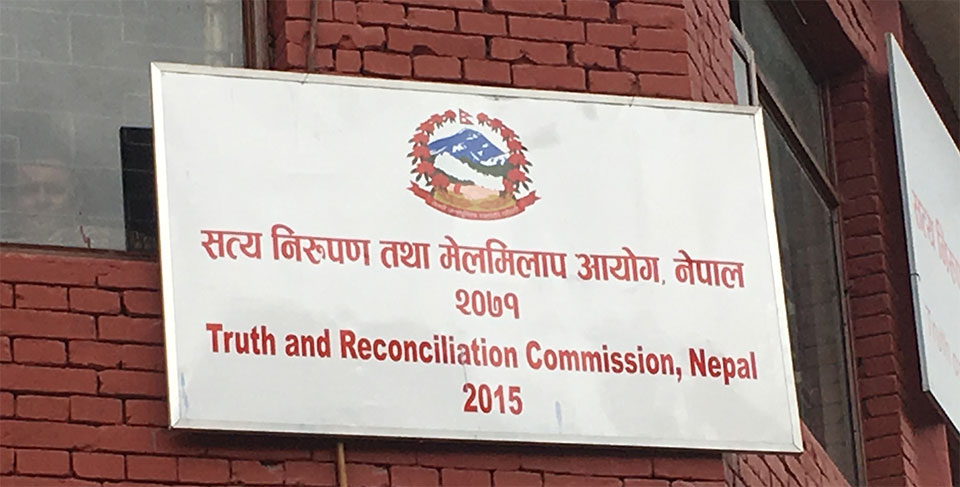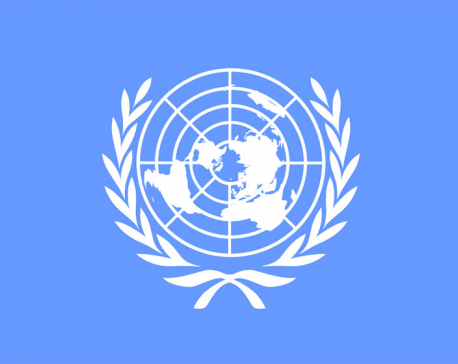
OR
Foreign interference on rise due to dilly-dallying in transitional justice process: activists
Published On: August 3, 2019 04:28 PM NPT By: Santosh Ghimire | @journonepali

KATHMANDU, Aug 3: Human right activists on Saturday said that foreign intervention is on the rise in Nepal's internal affairs due to an inordinate delay in the transitional justice process.
Speaking at a program held in the capital, the speakers urged the government to complete the transitional justice process as early as possible. They also expressed concerns about the sluggish transitional justice process.
Activist Pradeep Pokharel urged the government to amend the existing laws related to the transitional justice before appointing the office bearers of the Truth and Reconciliation Commission (TRC) and Commission on the Investigation of Enforced Disappeared Persons (CIEDP).
"The protracted transitional justice process will remain incomplete if the government does not amend the transitional justice-related laws. I urge the government to amend the laws before appointing the office bearers of these two commissions," he said.
Pokharel said that foreign intervention in the country's internal affairs is on the rise due to an inordinate delay in the transitional justice process.
On the occasion, human right activist Kapil Shrestha warned of grave consequences in the country if the transitional justice process remained incomplete.
"The international community has expressed displeasure at the slugging transitional process in Nepal. Hence, the government should accomplish the remaining tasks of the transitional justice at the earliest," he said.
Another human right activist Charan Prasai opined that the transitional justice process should not be halted as it is an integral of the Comprehensive Peace Agreement signed between the then rebel Maoists and the state in 2007.
Earlier in April this year, the United Nations rapporteurs and the UN Working Group on Enforced or Involuntary Disappearances had expressed serious concerns over lack of impartiality, independence, and transparency in the procedures adopted for the appointment of members of two transitional justice mechanisms of Nepal.
In a letter to the government through Nepal's Permanent Mission to the United Nations Based in Geneva, they said that ‘undefined’ selection procedures for the appointment of the members of the TRC and CIEDP could affect the selection of new commissioners, leaving insufficient guarantee for the impartiality, independence, and transparency in the appointment process.
The special rapporteur on extrajudicial, summary or arbitrary execution, special rapporteur on torture and other cruel, inhuman or degrading treatment and punishment, special rapporteur on the promotion of truth, justice, reparation and guarantees of non-recurrence and special rapporteur on violence against women, its causes and consequences and the UN Working Group on enforced and involuntary disappearances jointly expressed concerns that the proposed and later adopted ordinance on CIEDP and TRC could contravene international norms and standards.
While urging the government to ensure that any legislation establishing transitional justice mechanisms is in compliance with international norms, the special rapporteurs called on the government to amend several provisions of the TRC Act to put it in conformity with international standards, in particular those relating to the TRC’s competence to recommend amnesties to perpetrators of gross violations of human rights and serious violation of international humanitarian laws.
You May Like This

Proposed Bill allowing govt to withdraw criminal cases threatens justice and accountability: ICJ
KATHMANDU, August 11: The International Commission of Jurists (ICJ) has said that the legislation introduced by the government last month... Read More...

Federalism: learning by doing
Issues have emerged regarding effective implementation of federalism. But there is a long way to go and these issues can... Read More...

The West including United Nations urges govt to be open about transitional justice
KATHMANDU, Jan 24: At a time when the tenure of two transitional justice mechanisms is expiring in two weeks, the... Read More...







Just In
- NRB to provide collateral-free loans to foreign employment seekers
- NEB to publish Grade 12 results next week
- Body handover begins; Relatives remain dissatisfied with insurance, compensation amount
- NC defers its plan to join Koshi govt
- NRB to review microfinance loan interest rate
- 134 dead in floods and landslides since onset of monsoon this year
- Mahakali Irrigation Project sees only 22 percent physical progress in 18 years
- Singapore now holds world's most powerful passport; Nepal stays at 98th











Leave A Comment